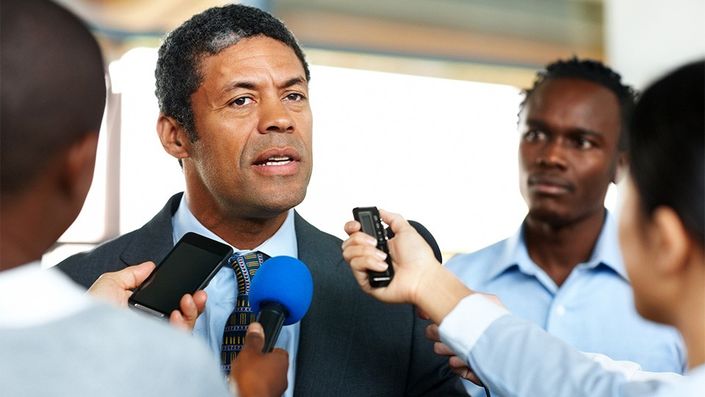
Science Communication Skills for Press Officers
A free, self-paced online course to teach press officers how to communicate science to journalists and the public.
Introduction
If you work with a scientific organisation and one of your roles is to engage with the media or write any content for public consumption, then the Science Communication Skills for Press Officers free online course is for you. It is a self-directed course, meaning you can log in and learn at your own time.
Why this course?
The course will improve your ability to get the media interested in science and present it to them in a language they understand. Upon successful completion of the course you will get a certificate.
What’s included?
- 10 short, user-friendly and interactive modules, divided into short, topical lectures. All of these modules are independent and can be taken individually.
- Practical tasks designed to help you apply media theory to your working practice.
- Worksheets to support your learning, where appropriate.
- A certificate upon course completion.
This course is brought to you as part of the Script project, which is made possible by the Robert Bosch Stiftung and implemented by SciDev.Net.
For any queries about the course please email training@scidev.net
Your Instructor

Training Coordinator, SciDev.Net
Scientist I Journalist I Science Journalist
Dr Charles Wendo is a science journalist, veterinary doctor and media trainer. He holds a Master of Arts in Journalism and Communication degree, a Postgraduate Diploma in Mass Communication, and a Bachelor of Veterinary Medicine degree, all from Makerere University, Uganda.
Course Curriculum
-
StartPre-module assessment
-
StartLearning objective - 1/12
-
StartIntroduction - 2/12
-
StartWhat is research? - part 1 - 3/12
-
StartWhat is research - part 2 - 4/12
-
StartHow research is done - 5/12
-
StartUses of research - 6/12
-
StartTypes of research 7/12
-
StartBasic vs applied research - 8/12
-
StartExperimental vs non-experimental research - 9/12
-
StartQualitative vs quantitative research - 10/12
-
StartDescriptive vs correlational vs explanatory research - 11/12
-
StartIn summary - 12/12
-
StartPost module assessment
-
StartModule completed!
-
StartPre-module assessment
-
StartLearning objective - 1/13
-
StartIntroduction - 2/13
-
StartWhat the media want from science - 3/13
-
StartSo, what is newsworthy in science? - part 1 - 4/13
-
StartSo, what is newsworthy in science? - part 2 - 5/13
-
StartNews values activity 1 - 6/13
-
StartNews values activity 2 - 7/13
-
StartNews values activity 3 - 8/13
-
StartNews values activity 4 - 9/13
-
StartNews values activity 5 - 10/13
-
StartNews values activity 6 - 11/13
-
StartApplication of science news values - 12/13
-
StartSummary - 13/13
-
StartPost module assessment
-
StartModule completed!
